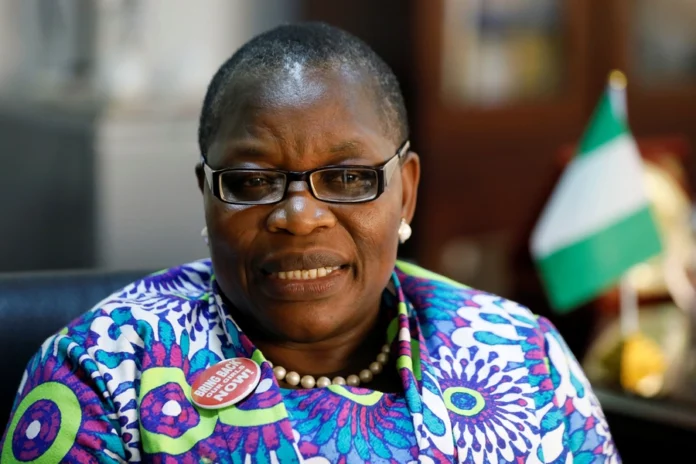Former Minister of Education, Dr. Obiageli Ezekwesili, has criticised the implementation of the fuel subsidy removal by the Tinubu administration, describing it as a “good reform wrongly implemented.”
Ezekwesili made the statement on Monday at the Nigerian Bar Association (NBA) Annual Conference, held at the International Conference Centre in Enugu. Speaking during one of the sessions, she acknowledged that the removal of the controversial subsidy was necessary, but faulted the way it was carried out.
“It is possible to implement the right policy in the wrong way. When that happens, the results can be counterproductive,” she said.
According to her, while the fuel subsidy regime had become unsustainable and riddled with corruption, the Tinubu government did not adequately prepare for the consequences of removing it. She noted that the sudden decision worsened inflation and left millions of Nigerians, especially the poor, struggling to cope with the rising cost of living.
“The fuel subsidy removal was a good reform, but it was not properly prepared for. Inflation is punishing the populace, especially the poor,” she added.
Ezekwesili, who is also a former Vice President of the World Bank (Africa Region), stressed the importance of sequencing reforms in a way that shields vulnerable groups from economic shocks. She explained that while the government was right to end fuel subsidies—which had cost the country trillions of naira over the years—it failed to put in place necessary safety nets and mitigation strategies before implementing the policy.
Her comments come more than a year after President Bola Ahmed Tinubu announced the end of fuel subsidy during his inaugural address in May 2023. Since then, fuel prices have tripled, and transport and food costs have soared, worsening inflation and poverty levels nationwide.
Many Nigerians have continued to lament the rising cost of living, with organised labour staging protests and calling for wage increases. Although the federal government introduced palliative measures such as cash transfers and food distribution, critics say the interventions have been too little and poorly coordinated.
At the same NBA event, the Minister of Interior, Olubunmi Tunji-Ojo, had earlier spoken about the importance of investing in research and production as a path to national development. He cited China’s focus on innovation and technology as an example Nigeria should emulate, urging the legal and business communities to support policies that promote economic growth.
But Ezekwesili argued that beyond planning for growth, reforms must be “thoughtfully designed” and implemented with the people in mind. “Reform is not just about making big announcements. It’s about understanding the social and economic context and ensuring that no one is left behind,” she said.
She added that abrupt economic changes, without public engagement and support systems, could lead to resistance, hardship, and loss of trust in government.
“The way the fuel subsidy was removed has created an unnecessary level of suffering. It could have been avoided with better planning, communication, and cushioning measures,” she said.
Ezekwesili’s remarks echo those of other economic experts and civil society leaders who have warned that Nigeria risks losing the potential benefits of subsidy reform if the government does not act quickly to address the impact on ordinary citizens.
They argue that any reform—no matter how economically sound—must be tailored to Nigeria’s complex realities, including high unemployment, weak infrastructure, and a fragile middle class.
Fuel subsidy has long been a contentious issue in Nigeria. While it was initially introduced to make fuel affordable, it became a drain on national resources, with estimates showing that Nigeria spent over N4 trillion on subsidies in 2022 alone. The system was also widely criticised for encouraging smuggling, corruption, and inefficiencies in the petroleum sector.
Despite these issues, previous attempts to remove the subsidy were met with stiff opposition from labour unions and the general public, largely due to the lack of trust in government and fears of increased suffering.
Ezekwesili, who has been a consistent voice for transparency, good governance, and citizen-focused policy-making, urged the current administration to learn from its mistakes and prioritise the welfare of Nigerians in future reforms.
“The ultimate goal of any policy must be to improve the lives of the people. That should be the standard,” she concluded.
